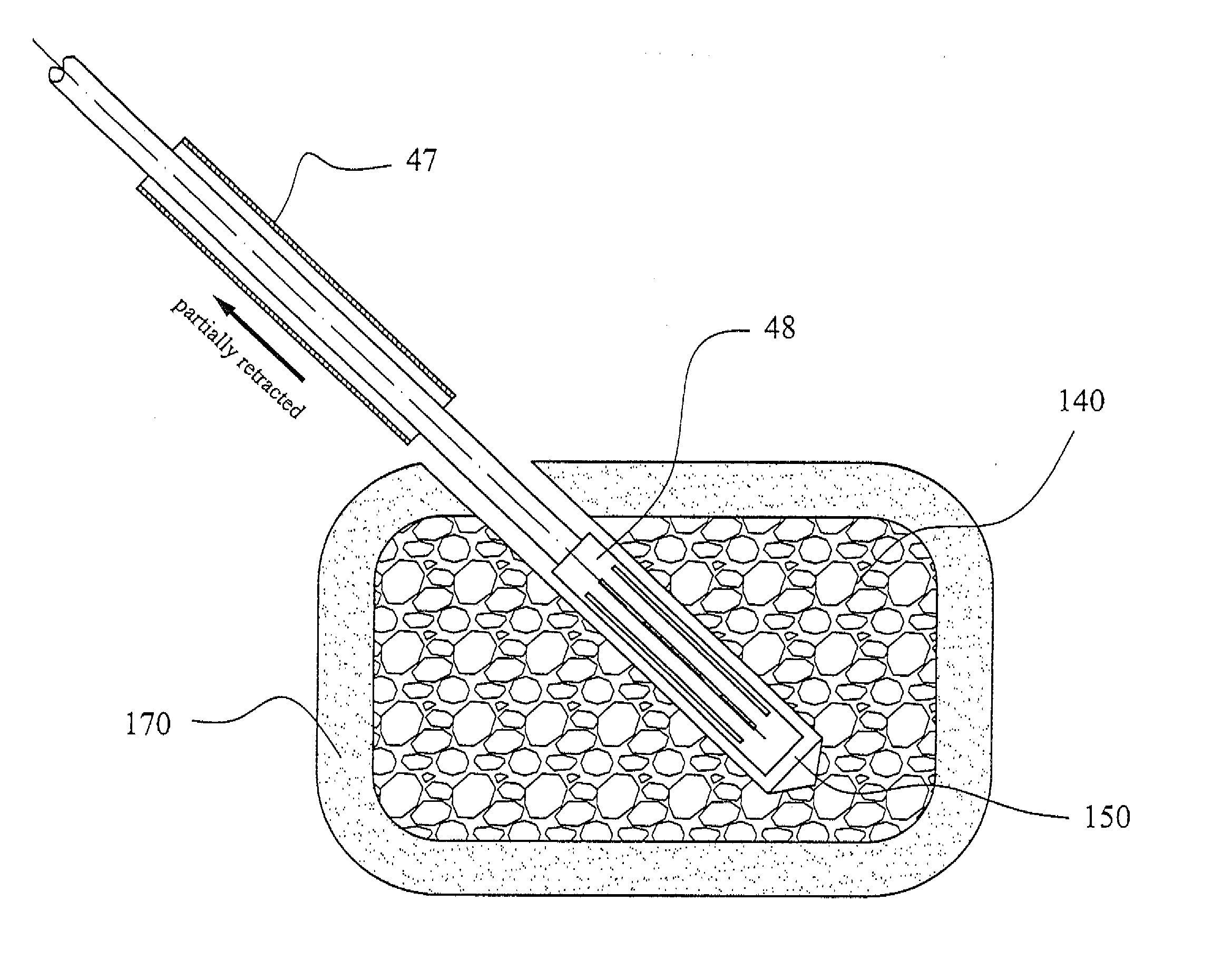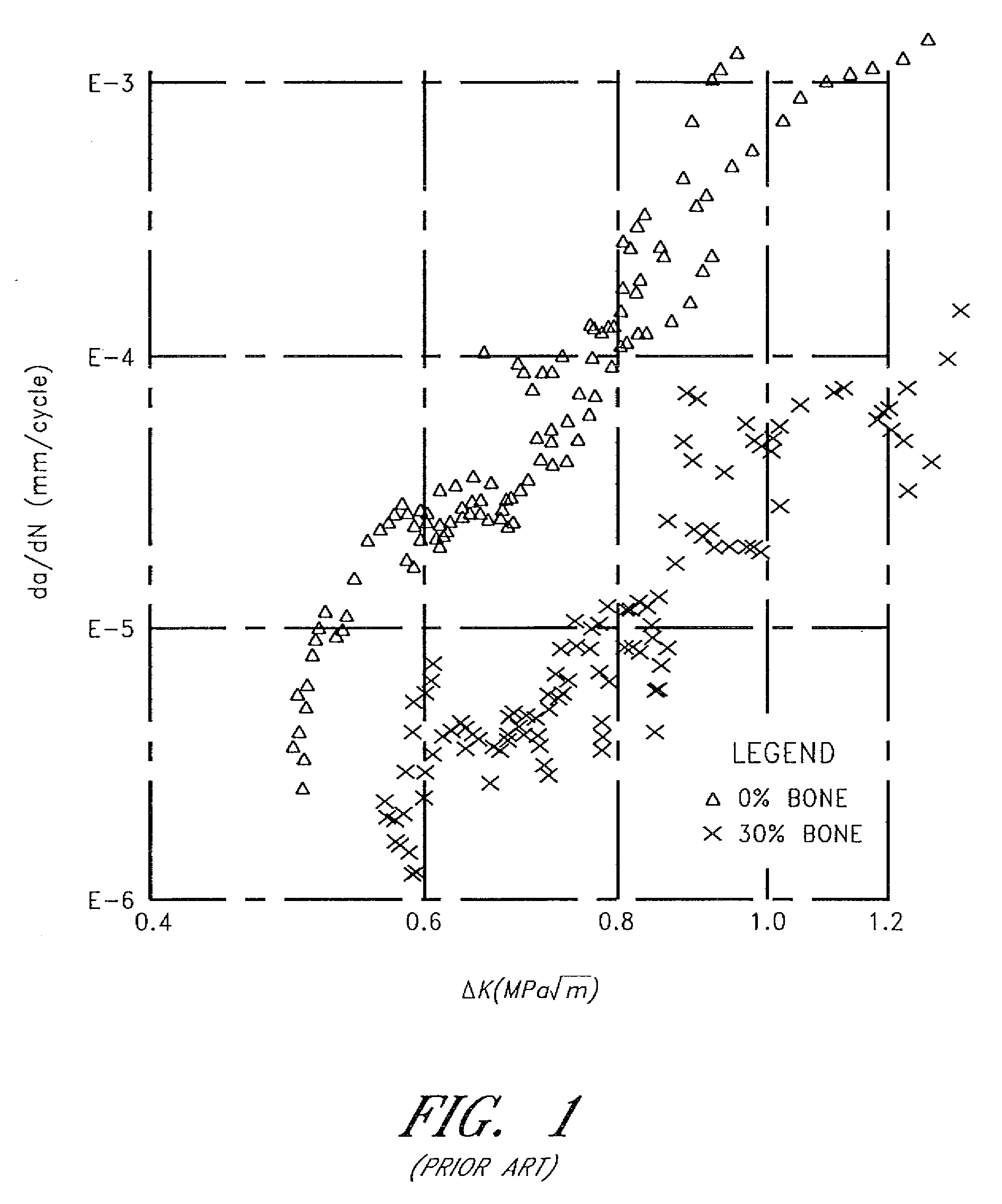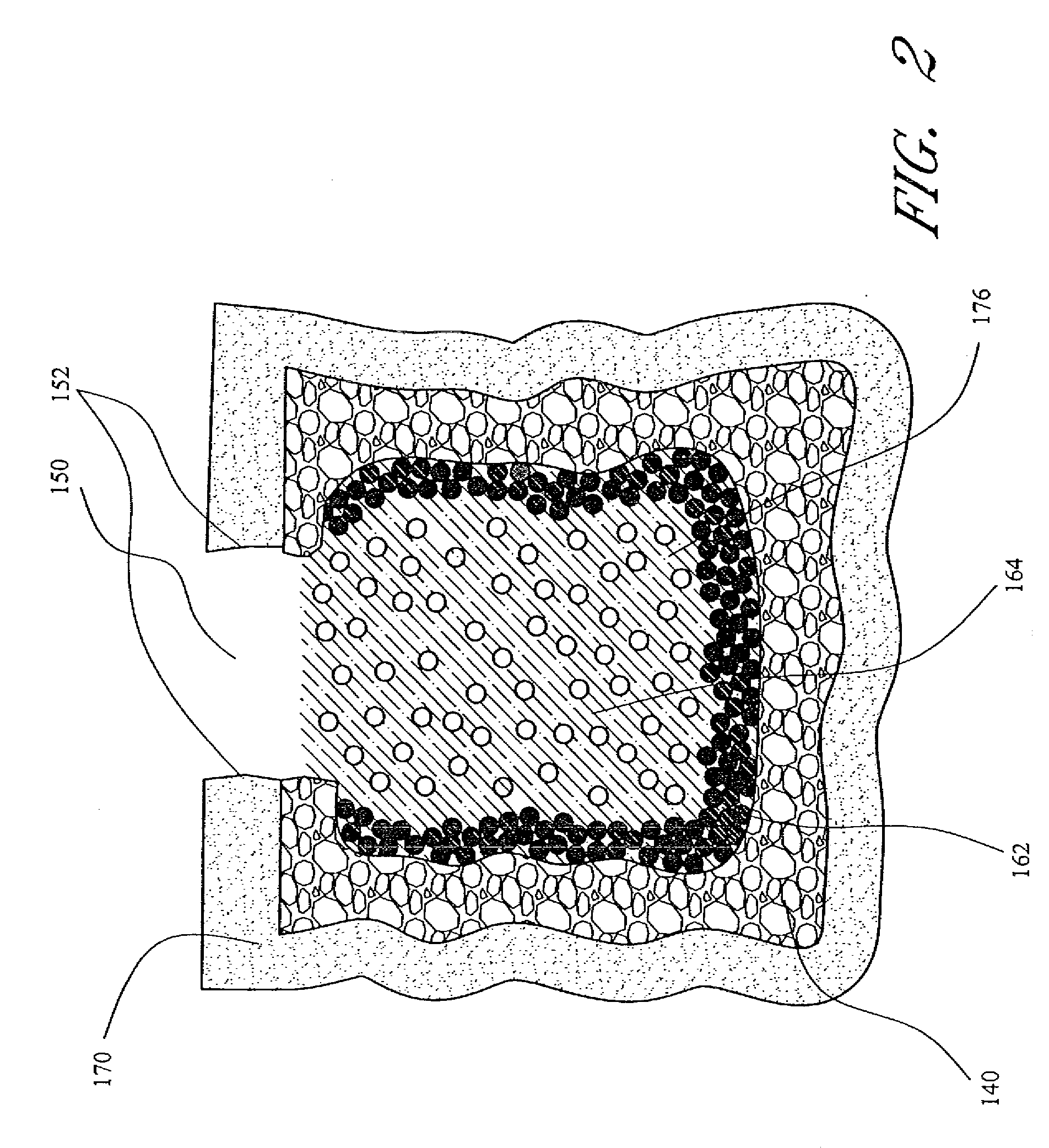Vertebroplasty methods with optimized shear strength and crack propagation resistance
a technology of crack propagation resistance and shear strength, applied in the field of bone cement, can solve the problems of natural penny cracks, cyclic load-bearing of cement, corrosion fatigue, etc., and achieve the effects of treating or preventing a vertebral compression fracture, and reducing the volume of the cavity
- Summary
- Abstract
- Description
- Claims
- Application Information
AI Technical Summary
Benefits of technology
Problems solved by technology
Method used
Image
Examples
Embodiment Construction
[0079]The composition regime of a composite exemplified by an optimal weight fraction of particles (which is greater than about 25%, and less than about 35% in a preferred embodiment) in the cement can be described as a crack-arresting regime. Based on the known proportion of the particles and the polymer, it can be expected that such a composite contains a substantially continuous phase of hardened acrylic cement that surrounds particles, which infrequently touch each other. It is believed that cracks, which originate in the substantially continuous polymeric phase, are only able to propagate for a short distance before they reach the hole of a particle, which then arrests the growth of the crack propagation. If a composite contains an even higher volume fraction of particles, it can exhibit another regime of behavior in vivo. In such a situation, there would again be at least some of a continuously interconnected phase of hardened acrylic cement, but, at the same time, many of the...
PUM
| Property | Measurement | Unit |
|---|---|---|
| size | aaaaa | aaaaa |
| thickness | aaaaa | aaaaa |
| weight fraction | aaaaa | aaaaa |
Abstract
Description
Claims
Application Information
 Login to View More
Login to View More - R&D
- Intellectual Property
- Life Sciences
- Materials
- Tech Scout
- Unparalleled Data Quality
- Higher Quality Content
- 60% Fewer Hallucinations
Browse by: Latest US Patents, China's latest patents, Technical Efficacy Thesaurus, Application Domain, Technology Topic, Popular Technical Reports.
© 2025 PatSnap. All rights reserved.Legal|Privacy policy|Modern Slavery Act Transparency Statement|Sitemap|About US| Contact US: help@patsnap.com



